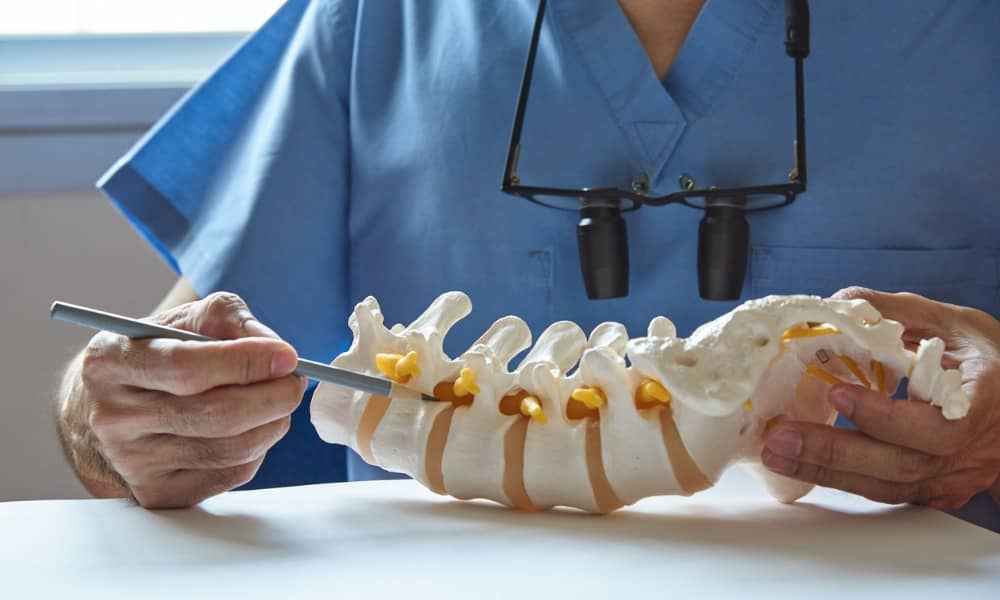What Causes a Bulging Disc?
A bulging disc, also called a herniated or slipped disc, occurs when the soft, gel-like center of an intervertebral disc pushes through a weak spot in its surrounding, outermost layer. When a disc becomes compressed and bulges out, it may make contact with a nerve, resulting in pain and discomfort in the lower back.
Typically, the purpose of these spinal discs is to prevent the vertebrates from rubbing against each other, as well as to act as shock absorbers to prevent spinal damage during movement.
Bulging Disc Symptoms
Symptoms of a bulging disc in the back can include sudden pain and/or stiffness, as well as numbness and tingling. The location of the pain can vary from person to person, but it is most commonly situated at the base of the spine and may radiate down into the affected person’s thighs or legs. Other symptoms include:
- Less mobility in the legs, knees, and ankles
- Decreased bladder and bowel control
- Sciatica
- Reduced coordination
- Difficulty walking
- Worsening of back pain with movement
Bulging Disc Causes
There are many causes of a bulging disc, such as genetics, obesity, and old age.
-
- Genetics is the most common cause of a bulging disc, making it especially common in people with a family history of back problems.
- Intense Physical Activity may weaken the back and abdominal muscles, placing heightened stress upon the vertebrae. Competitive athletes, particularly ones who participate in contact sports, are at risk for developing a bulging disc early in life.
- Obesity can also be a contributing factor to developing a bulging disc. Some theorize that this is due to the added weight on the discs in your spine, while others believe that it is due to the pressure from spending an increased amount of time sitting.
- Aging can also lead to herniation, as the gel in a spinal disc naturally erodes over time.
- Trauma or a traumatic accident like a car crash can result in a herniated disc.
Bulging Disc Prevention
There are many ways to help reduce your risk of disc herniation in your spine:
Maintain Physical Activity
Research has found that those who maintain an active lifestyle are less likely to develop herniated discs than those who follow a sedentary lifestyle. Sustaining a healthy weight can decrease the pressure on the discs of your spine and ease the pain associated with herniated discs.
Follow a Healthy Lifestyle
Along with exercising regularly, it is important to eat well and drink plenty of water to promote overall health and keep your back strong with optimal hydration and the necessary nutrients.
Avoid Sleeping on your Stomach
Make sure to sleep on a firm mattress to avoid disc herniation and do not sleep on your stomach or face when possible.
Practice Correct Posture
Sitting down for extended periods of time can add pressure to your back and compress your spine. When you practice correct posture, you are placing the least amount of pressure on your spinal discs. To maintain proper posture, relax your shoulders, pull in your abdomen, keep your feet on the floor, and make sure to stretch and move every so often to relieve muscle tension.
Do Not Smoke
Smoking has been linked to a lack of oxygen supply to your spine’s discs, causing them to break down more quickly.
Contact The Spine Pro
If you believe that you may be struggling from a bulging disc, or are concerned that you are at high risk to herniate a disc in your spine, contact Dr. Hooman M. Melamed at The Spine Pro today. Dr. Melamed specializes in minimally invasive surgeries and will be able to provide you with a holistic treatment plan that prioritizes your individual needs.






